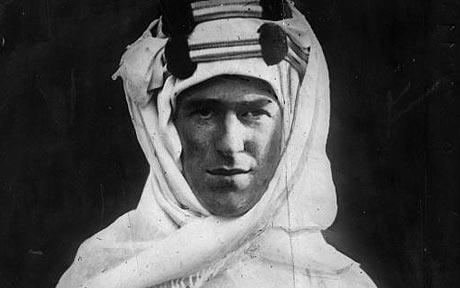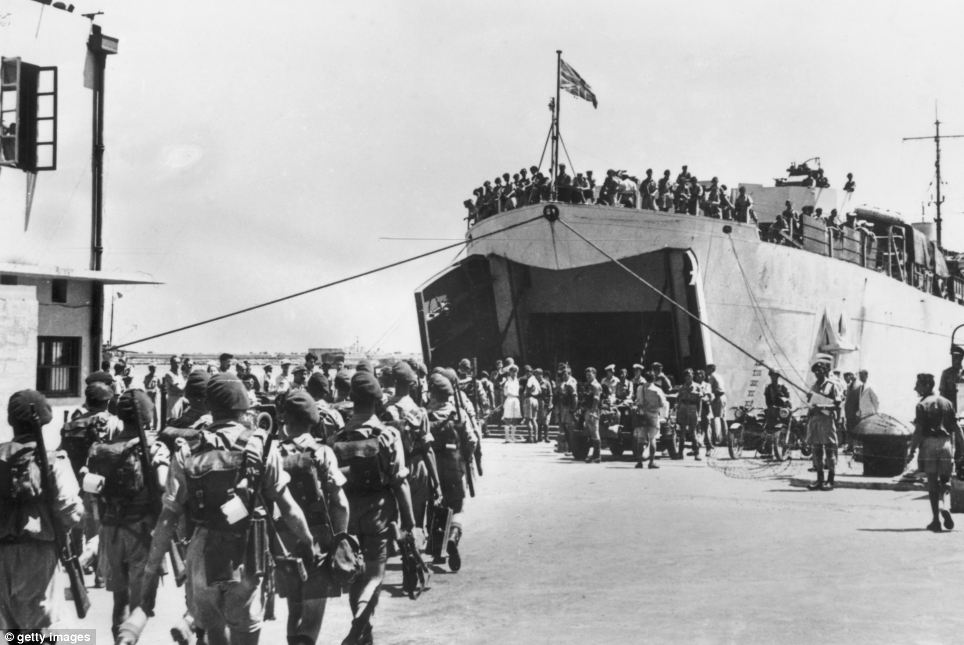World War I had a profound impact on the Middle East and North Africa. With the breakup of the Ottoman Empire, European powers carved the region into mandates, protectorates, colonies, and spheres of influence. Just a few decades later, however, World War II, however, left the colonial powers bankrupt and looking to get out of the empire business as quickly as possible, regardless of the consequences.
In the second half of a two part podcast, guest and co-host Christopher Rose from UT’s Center for Middle Eastern Studies discusses the lingering effects of 20th century European imperialism in the region and the transition to independence.
Guests
 Christopher RosePostdoctoral Fellow, Institute for Historical Studies, The University of Texas at Austin
Christopher RosePostdoctoral Fellow, Institute for Historical Studies, The University of Texas at Austin
Hosts
 Joan NeubergerProfessor of History, University of Texas at Austin
Joan NeubergerProfessor of History, University of Texas at Austin
In Part I of this podcast, we were talking about the colonization of the Middle East by European powers.
Right, we got almost as far as World War I.
Give us a little recap, and then let’s talk about World War I.
We started talking about the naval rivalry between Spain and the Ottoman Empire over the course of the 15th, 16th, and 17th century; the Barbary Pirates and how France got into Algeria to put them down, and then decided to hang around Algeria, and we ended by talking about how Egypt basically became an autonomous provice of the Ottoman Empire over the course of the 19th century, with a lot of help, and winding up being colonised by Britain at the end.
So, by the eve of World War I, the Ottoman Empire was really the sick man of Europe, as it was called at the time–
–absolutely–
Russia’s power was increasing at the time, it was allied with France economically, and with Britain in the war, and Turkey was allied with Germany and Austria-Hungary. What’s the impact of World War I on the whole picture of colonization?
Britain and France begin encouraging what becomes known as the Great Arab Revolt, in which Egypt and what is known as Greater Syria–Syria, Jordan, Lebanon, Israel, and the Palestinian areas–as well as Iraq are encouraged to revolt, and basically to open up a second front behind the Ottoman Empire that will divert them away from trying to protect their territory from Russia.

And these are the battles that are dramatized in Lawrence of Arabia?
Absolutely. And what’s interesting is that Lawrence of Arabia–T.E. Lawrence–was assigned to the Hashemites, who ruled out of Mecca, and whose descendents are the royal family of Jordan. They moved, and that was part of the whole settlement afterwards. Britain agreed to support independence for all of these countries, however, Britain and France worked out another agreement–the Sykes-Picot Agreement of 1916–which was signed in secret.
It divided the region into areas that looked really good to the colonial offices in London and Paris, but made absolutely no sense on the ground. For example, there are two countries that really epitomize the colonial midset: one is Jordan, and the other is Lebanon.
Lebanon was created as a safe haven for the Christians of the region, and it was literally split off from Syria because the French decided that Christian and Muslim should not be living together. What they accidentally did was create a country that had no majority population at all; it was a country made up entirely of a plurality of minority populations, which is one of the reasons why there have been internal skirmishes ever since. In addition to which, at the time—and for a long time after that—the Muslim population really just wanted to be part of Syria again.
Jordan, by contrast, was created specifically because as part of the agreements that Lawrence of Arabia worked out, two sons of the rulers of the Hejaz were promised kingdoms: one was supposed to become the king of Iraq, which he did—they were deposed in a revolution in the 1950s—and the other was supposed to become king of Syria. Well, under the Sykes-Picot agreement, Syria went to the French as a protectorate, so Britain couldn’t promise it to them. So, they literally took out the map, drew some lines on it—and this is where Jordan originates. They had to come up with a kingdom to give this guy. He was marching to Damascus with his army. They met him at the train station in Amman and said, “Hey, guess what? This is your new kingdom!” And, literally, that’s why Jordan was created.
It’s similar to the Scramble for Africa, which we have another 15 Minute History episode about.
Right. They really were not following any ethnic or geographic lines when they did this.

At the end of the war, Turkey was given very embarrassing conditions for peace. It was to be partitioned. If the plan had gone through, the Dardanelles would have been an international zone, partitioned by the League of Nations, Greece got a lot of territory, France got a lot of territory, Russia got a lot of territory, part of which was supposed to be a homeland for the Armenians, and what would have been left for Turkey would have been a landlocked area right in the center of the plateau around modern Ankara, about a quarter of the size of the modern nation.
Turkey refused to accept the terms, and they wound up fighting a long war with their neighbors, which was finally resolved in 1923 and the Treaty of Lausanne, which establishes the borders of modern Turkey. It also forced Turkey to acknowledge the loss of those territories outside those borders that had been part of the Ottoman Empire. Germany and Austria-Hungary, of course, had their own issues, but Turkey was able to sort of re-gain itself and create a republic over the course of which the Ottoman sultanate was abolished, and the position of Caliph of Islam, which the Ottoman sultan had held, was also abolished. Turkey became a modern republic, which we still see.
So, what’s the situation after World War I? Who’s still colonized by France and Britain, and who’s independent?
Nominally, everybody’s independent, but there are a lot of mandates going on. Morocco is a French protectorate, Algeria is annexed into France. Actually, Northern Morocco, up along the coast, is a Spanish protectorate, it’s considered Spanish Morocco. Tunisia is a French protectorate. Libya, interestingly, was colonized by Italy very late because, up until the early 20th century no one really cared about Libya because it doesn’t have many resources. They didn’t know about oil at the time, and Libya was basically annexed because Italy needed a colony in order to make itself an empire.
Egypt, what is now Israel and the Palestinian territories, Jordan, and Iraq are all British protectorates, and Lebanon and Syria are French protectorates. Cyprus is under British rule, Yemen is under British rule. Basically, anything with a coastline is being argued over. Ironically, the only indigenous area that manages to assert itself is the center of what is now Saudi Arabia–the Saud family takes over everything in the 1920s and creates the kindgom of Saudi Arabia, which everyone’s happy to let them know because, again, they didn’t know about oil and the Saudi family just wasn’t much of a threat.
So, this is where we are when we get into World War II. Turkey decided to remain neutral this time, I think for obvious reasons, because they lost so badly in World War I. The Germans, when they invade France, take over the posessions in North Africa, and from there they attempt to get control over the Suez Canal. This is Rommel’s Afrika Campaign. One of the things they did was they promised independence to Egypt if they agreed to assist, but they were turned back at El Alamein, which is about an hour west of Alexandria.
But, the Middle East and North Africa really isn’t a major theater in the war, however, the war has a major impact on the region. Mainly because the two colonial powers in the region, after the war, are bankrupt, and they need to get out of the business of being empires as quickly as humanly possible. This is particularly true of Britain—Britain was utterly bankrupt at the end of the war; they were receiving food aid from the United States and Argentina in 1946, and they were just in a rather desperate financial situation.
In Jordan and Iraq it just sort of involved handing the keys of the government palace over and saying, “Hey, guess what? You’re now independent.”

The Palestinian situation—in the Palestine mandate—was, of course, much more complicated because there had been Jewish migration to the region since the late 19th century. Even before World War II the Jewish and Arab populations in the mandate were vying for control and fighting with each other and, very similar to what happened in India, Britain basically drew a bunch of lines on the ground and announced, “We’re leaving.” They pulled up stakes and left, “Let go and let God.” That’s, of course, a much longer story that would take up its own podcast episode, but one of the reasons why they precipitously pulled out of Palestine was because they could no longer afford the expense of keeping a large military force there.
So, what about France?
France took a little longer to decide that it was willing to part with its colonies. Morocco and Tunisia got independence relatively quickly, but they really wanted to hold on to Algeria. Starting in 1954, the Algerians themselves–the Algerian Arabs–started fighting back. There was an eight year war, very long, very bloody, very costly to France, and finally independence was negotiated in 1962. One of the reasons why they didn’t want to give it up is that by this point there were a million French citizens living in Algeria. They were born there, and in many cases their parents were born there. It was a very difficult decision for France to decide that they were going to withdraw from this colony.
They didn’t really withdraw, right? The Algerians won.
The Algerians won, correct. It was a war, France lost. You see French influence in Morocco and Tunisia, but not to the extent that you see it in Algeria. There is a certain class of people in all three countries who only speak French, even though they’re Arab, because the French really left their mark. So, it was a long bloody decision for France to pull out of Algeria.
What happens in Lebanon? It’s an ethnically complicated country.
Again, France withdraws. One of the problems was that Syria never really recognized Lebanese independence. Lebanon wanted to be an independent country, but in 1958, there is a conflict because the Muslim population of the country wants to have one set of laws, the Christian populations–by the way, none of whom get along with each other because you have Shi’ite, you have Sunni, you have Druze, you have Catholics, you have Orthodox Christians, you have a small Jewish population, and they’re all at odds with one another. We see an outbreak in 1958, and then the devastating civil war between 1975 and 1990 which, ironically, as part of the settlement, the Syrian army went in and then refused to leave. They were finally expelled in 2005. So, that’s been a very very long process there. France got out of there, so it wasn’t about the French, like it was in Algeria, but the legacy of Lebanon’s creation remains.
This is probably a good place to also bring up Cyprus. It’s usually considered part of Europe, it’s part of the EU, but it was an Ottoman possession when Britain took it over in 1878. The country is two-thirds Greek, ethnically, and one-third Turkish. Britain actually held on to until 1960 literally because they couldn’t decide what to do with it. Britain wanted Cyprus to be independent, Turkey was arguing that it was a possession and needed to be returned, Greece wanted it to be unified, and again, the independence agreement that they had was so restrictive that literally nothing could happen in Cyprus that the governments of Britain, Turkey, and Greece didn’t agree with.
Easy to see why this is a problem!
It’s a huge problem. After independence, there’s a lot of ethnic tensions, there’s a lot of ethnic violence. There’s a skirmish in 1963, there’s a coup in 1974 that deposes the President of Cyprus and he’s replaced with somebody who wants to unify the country with Greece. Shortly thereafter, the Turkish army invades to prevent that from happening, and this is actually still the situation on the ground.

It’s split?
It’s split between the independent south, which is, at this point, almost uniformly Greek speaking, and a Turkish occupied north, which declared independence in 1982, although that independence is only recognized by Turkey. The rest of the world regards the area as occupied.
Our final question is really a huge question. What are the legacies of colonization and decolonization in the Middle East?
A lot of countries were really left with authoritarian governments. Unlike in India or parts of Africa, these countries were protectorates, mandates; the Europeans weren’t there to teach them to be modern countries. They were there basically to extract resources, if we want to be honest. Local systems were left in place that tended to be rather authoritarian, and they weren’t replaced. After independence, a lot of them turned to socialism because colonial administrations provided everything through the state and so it was assumed that this is what a country had to be. The ironic thing about this is that the only countries in the region that are actual representative democracies with some degree of freedom that we would recognize are countries that did it themselves: Israel and Turkey, and both halves of Cyprus are parliamentary democracies. But they did it all themselves. It wasn’t a system that was left in place by European powers.
And, of course, as we examined in an earlier episode, this sort of authoritarianism leads to extremism over time.
The other thing that we see is that–and again this is similar to the situation in India–the infrastructure development in these countries was frequently based on import/export: i.e., getting stuff to ports so that it could be taken to Europe. It wasn’t necessarily made for ease of getting from one end of a country to the other. The Middle East, we don’t see them suffering as much as Africa because the countries are geographically smaller, but to this day it’s still easier to move along the Algerian coastline than it is to go over the Atlas Mountains all the way down to the borders of Niger and Chad in the deep desert because that’s how the infrastructure was designed in the era of colonialism.
To benefit France?
To benefit France, exactly. As I mentioned, the only real exception to this was Egypt, which was poised, except then it mired itself in debt which it never quite recovered from.
The other thing that was see a lot of is unequal distribution of resources, particularly among ethnic groups. The European powers tended to employ a local class or ethnic group as their proxy on the ground. For example, Coptic Christian businesses in Egypt tended to be preferred by British; the Maronites were preferred over others in Lebanon by the French, and the Greek over Turk in Cyprus. In countries that didn’t have large Christian minorities, they would then go with a particular ruling family to act on their behalf, and quite frequently what this means is that there’s a small percentage of the population that controls a large percentage of the resources. For example, even though the Christian population of Egypt is around 15%, they control a much larger percentage of businesses, and the numbers of Christians who are upper and middle class are higher than there are for Muslims. And, like we saw in the Balkans in the 1990s, the “ethnic” and “religious” tensions that have resulted out of that are quite frequently not actually about ethnicity and religion at all. They’re about unequal status and power. The fact that somebody was favored along the way, and now we’re trying to make that even out.
This isn’t to say that, particularly in the situation in Egypt where there are now ultraconservative zealots, that some of this isn’t actually based on religion, but a large part of it is motivated by things much deeper than who goes to which religious institution on which day of the week.